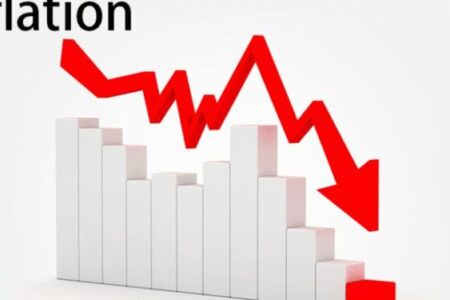Ghana’s annual inflation slowed to a more than two year low in June, potentially putting an interest-rate cut on the table, though food price gains accelerated.
Consumer prices rose 22.8%, their slowest pace since March 2022, from 23.1% May, Government Statistician Samuel Kobina Annim told reporters in the capital, Accra, on Wednesday. The median of three economists’ estimates in a Bloomberg survey was 22.5%.
“The recent stabilization of the cedi and food staples coming to market after harvest should allow for inflation to fall further toward 20% in coming months,” Mark Bohlund, a senior credit research analyst at REDD Intelligence, said by email before the release. “Such a slowing in inflationary momentum should make the central bank more confident to restart its monetary easing this month, albeit with another relatively small 100 basis point cut,” he said.
After a rate cut in January, the central bank’s monetary policy committee has kept its key interest rate unchanged at 29% to support the cedi and ensure that its depreciation doesn’t become embedded into inflation expectations and the pricing behavior of businesses. It will give its next rate decision on July 29.
Ghana dollar bonds maturing in 2032 rose 0.18 cent to 51.1 cent on the dollar at 11:18 a.m. in London. The cedi traded relatively unchanged at 15.4 per dollar.
The cedi has depreciated 0.6% this month against the dollar, compared with 3.7% in June, and 7.3% in May. Market sentiment toward the nation has improved after its official creditors approved a deal clinched with eurobond holders in June to revamp $13 billion of dollar bonds.
Ghana embarked on a debt reorganization program to qualify for a $3 billion extended credit facility program with the International Monetary Fund.
The consent from the official creditor committee paves the way for the West African nation to round up the process of restructuring by issuing new bonds to investors to replace the existing ones.
The country’s target is to begin the debt exchange program this month and conclude it by end-September.
The main driver of the deceleration in inflation was non-food prices growth. It slowed to 21.6% in June from 23.6% a month earlier, whereas food inflation remained sticky. It accelerated to 24% from 22.6% in May. Prices rose 2.9% in the month.
Source:norvanreports.com

